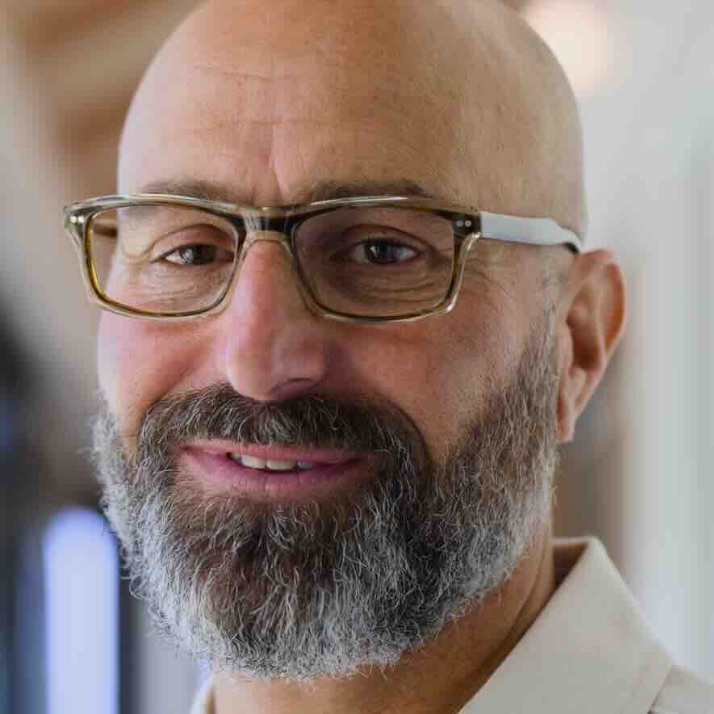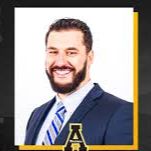Why Local Care Matters for Substance Abuse
Finding care for Substance Abuse in St. Louis works best when support is close to home, making it easier to keep appointments, add group sessions, and tap into local recovery resources. Local therapists understand the community, transportation options, and stressors unique to life in St. Louis, improving rapport and follow-through. Nearby care also helps with frequent check-ins, relapse prevention planning, and coordination with local hospitals or peer groups when you need timely support.
MiResource makes it simple to find Substance Abuse therapy in St. Louis with filters for insurance, real-time availability, and therapy type, so you can quickly match with providers who fit your budget and schedule. You can search for approaches like medication-assisted treatment, harm reduction, or care for co-occurring anxiety and depression—key considerations for Substance Abuse. Filter for evening or weekend openings, in-person or telehealth across Missouri, and cultural fit with providers who understand your neighborhood and values. Local matches improve outcomes, and MiResource’s directory streamlines the path to accessible, consistent care.
Local Options and Community Programs
Local resources in St. Louis can help you navigate treatment, harm reduction, and recovery for Substance Abuse. From crisis hotlines and ERs to outpatient clinics, peer groups, and county programs, you can find options that fit your needs and budget. Many services offer same-day assessments, medication-assisted treatment (MAT), and sliding-scale fees. Support is available whether you’re seeking immediate help, ongoing therapy, or community-based recovery.
- Crisis Support
Public Programs
Nonprofits & Support Groups
Universities & Health Systems
The Advantages of Seeing a St. Louis-Based Therapist
Choosing a St. Louis-based therapist for Substance Abuse means working with someone who understands the rhythms of neighborhoods like the Central West End, Tower Grove, Soulard, and North City, as well as the pressures around the Delmar Loop or Downtown near the Gateway Arch and Busch Stadium. Local clinicians can connect you with city-specific resources such as the St. Louis Department of Health’s opioid response efforts, PreventEd, Places for People, and Queen of Peace Center. They also know where and when NA/AA meetings happen in familiar spots—community churches on South Grand, libraries in Benton Park, or rec centers near Forest Park—building a support network that fits your daily life. Cultural awareness of St. Louis’s history, sports seasons, and neighborhood identities helps tailor care that feels authentic and grounded.
In-person sessions are accessible across the city, whether you’re near the Central West End MetroLink stop by BJC, commuting via I‑64/40 or I‑44 from South City, or catching a bus down Cherokee Street. Therapists can schedule around event traffic near CityPark and Enterprise Center, and many offer convenient parking or walkable locations in Midtown and The Hill. Face-to-face care improves accountability and privacy, and your therapist can coordinate quick referrals to nearby detox, CSTAR programs, or same-week groups. With local know-how and connected networks, getting to and sticking with treatment in St. Louis becomes simpler and more sustainable.
Holistic Approach to Mental Health in St. Louis
Holistic care means tending to your mind, body, and environment—pairing evidence-based treatment for Substance Abuse with practices that support sleep, movement, nutrition, stress relief, and safe, supportive surroundings. In St. Louis, that might look like counseling or recovery groups alongside yoga at Urban Breath Yoga in The Grove or Maplewood, mindfulness through Insight STL, and integrative wellness visits near the Central West End medical district. Green spaces like Forest Park, Tower Grove Park, and the Gateway Arch grounds offer accessible places to walk, breathe, and reset, while Tower Grove Farmers’ Market makes fresh, local food easier to access.
Care here goes beyond the clinic: explore reflective time at the Saint Louis Art Museum, music for mood regulation in Grand Center (Jazz St. Louis, The Sheldon), or creative energy on Cherokee Street—complements to therapy that help sustain change. Whether you’re in Soulard, the Delmar Loop, or Midtown, MiResource can connect you to personalized options: outpatient programs, peer support, yoga and meditation, wellness clinics, and community activities that fit your life. We make it simple to map a whole-person plan rooted in St. Louis resources that support recovery and long-term well-being.
What Substance Abuse Means
Substance Abuse means using alcohol or other drugs in ways that can harm your health, mood, or safety, even if it started casually. In St. Louis, it can affect daily life by making it harder to focus at work or school, keep up with responsibilities, and stay connected with people you care about—but support is available.
About the Experience of Substance Abuse
Substance Abuse is when someone relies on alcohol or other substances in ways that start to cause problems in their life. Common signs include strong cravings, using more than planned, changes in mood or sleep, pulling away from friends or family, or struggling at work or school. It can disrupt daily routines by making it hard to stay on schedule, manage responsibilities, keep up with bills, or care for health. If you’re in St. Louis and notice these patterns, you’re not alone—support is available.
How Therapy Makes a Difference
Evidence-based treatments like Cognitive Behavioral Therapy (CBT), Motivational Interviewing, and Contingency Management help people change thinking patterns, boost motivation, and reinforce sobriety with tangible rewards, leading to fewer cravings and relapse. Medication-assisted treatment (e.g., buprenorphine or naltrexone, when appropriate) can stabilize brain chemistry and improve retention in care, giving people space to rebuild routines and health. Group and family therapies strengthen support systems, repair relationships, and increase accountability, which research links to better long-term outcomes and quality of life. With Substance Abuse therapy in St. Louis, you can access compassionate, proven care that turns goals into steady progress and hope into everyday stability.
Inside the Therapy Process
In St. Louis, your first session is a compassionate, judgment-free conversation about your history with substances, what you want to change, and immediate supports to help you feel safe. You and your therapist then create a personalized plan—setting goals, session frequency, and any helpful referrals, such as local support groups or medication-assisted treatment providers. Ongoing sessions typically use evidence-based methods like Motivational Interviewing, Cognitive Behavioral Therapy, relapse-prevention skills, and contingency management, with regular check-ins to track progress and adjust what’s not working. Collaboration is central: you choose priorities, practice strategies between visits, and your therapist coordinates with other St. Louis resources at your pace so you’re not doing this alone.
Answers to Your Questions About Substance Abuse
1. How do I know when it’s time to seek help for Substance Abuse?
If Substance Abuse is starting to affect your daily routines—like missing work or classes, canceling plans, or struggling to keep up with responsibilities in St. Louis—it may be time to reach out. You might notice using more than you planned, strong cravings, mood changes, or needing more to feel the same effect. Feeling worried about your use, hiding it from others, or having trouble stopping even when you want to are important warning signs. Therapy and local support can help you regain control and take a compassionate next step toward feeling better.
2. What if I don’t feel comfortable with my first Substance Abuse therapist in St. Louis?
It’s completely normal if the first Substance Abuse therapist in St. Louis doesn’t feel like the right fit—many people try a few before they find someone they click with. The therapeutic relationship matters because trust, comfort, and communication directly impact progress. MiResource makes it easy to compare St. Louis therapists by specialties, approaches, and availability so you can find someone who matches your needs. There’s no need to feel guilty about switching; finding the right fit is a healthy, important part of your recovery journey.
3. How do I explain my Substance Abuse to friends or family?
It’s your choice if, when, and how to talk about your Substance Abuse—share only what feels safe, and you can keep details private. Choose a calm time and place, use “I” statements, and be clear about what kind of support you want. Set boundaries like, “I’m not ready to discuss details,” or “Please don’t check my phone—let’s just listen right now,” and repeat them if needed. You can practice with someone you trust first and lean on local support in St. Louis if conversations feel tough.
4. Who can diagnose Substance Abuse in St. Louis?
In St. Louis, psychiatrists, psychologists, licensed therapists, and sometimes primary care doctors can diagnose Substance Abuse by reviewing your symptoms and history and using standardized screening tools and clinical criteria. MiResource lists only qualified, licensed providers in St. Louis who can deliver an accurate diagnosis and guide appropriate treatment, so you know exactly where to turn for help.
5. What causes Substance Abuse?
Substance Abuse can arise from many factors working together, including biology (like genetics or brain chemistry), mental health and stress, relationships and community influences, and life events or environments. These influences vary from person to person, and experiencing Substance Abuse is not a personal failing. In St. Louis, many people face complex pressures, and it’s understandable to need support. If you have concerns about your use or a loved one’s, reaching out for help in St. Louis is a strong and compassionate step.
6. What are the biggest misconceptions about Substance Abuse?
Many people think Substance Abuse is just a phase or a sign of weakness, but it’s a real health condition influenced by biology, stress, trauma, and environment. It’s also a myth that someone can “just stop” with willpower alone—evidence-based care and support make recovery far more likely. People struggling with Substance Abuse don’t have a single “look” or background; it can affect anyone. If you’re in St. Louis, you deserve compassionate, nonjudgmental help—reach out for professional support without shame.













